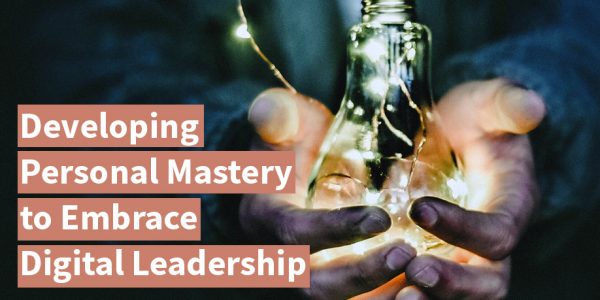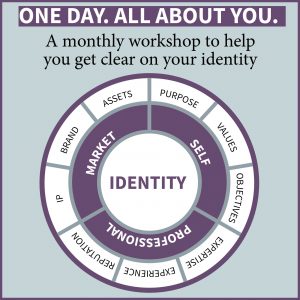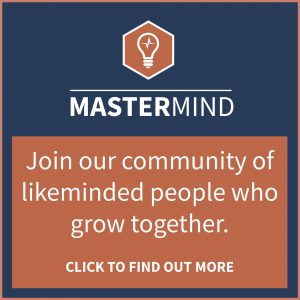As a digital leader in business, have you considered that you have a responsibility to provide not just strong leadership, but a strong role model for your workforce?
Why?
In digital business, it’s essential that thought leaders (and by extension the whole business) develop and promote a culture of encouraging challenges to the status quo. Organisations have to be ready to adopt new business models and explore emerging technologies in order to achieve continuous digital transformation.
Only by doing this will you be able to grab new opportunities to connect with your audiences, stay ahead of the curve in your markets and increase revenue.
Building this innovative culture requires total buy-in from CEOs and other C-suite leaders in order to create a digital mindset throughout the company.
Your workforce will observe what you, as a leader, value in the business. They will see what you invest in, who you promote, and what you encourage. And what you are seen to value will be what they value back.
And as Generation Z, a truly native digital generation, begins to enter the job market, creating a business culture which will embrace them and help them to grow will throw your leadership style into sharp focus.
What does this mean for you as a digital leader?
Digital leadership involves a great deal more than C-suite executives going on a few courses, or talking about an emerging technology as though it’s the holy grail of future success. The future of work is changing how and where work gets done, and a digital mindset means distributing power and decision-making as well as embracing a process of continuous learning and development.
This is where personal mastery comes in. Creating a culture of personal mastery can help you to become a better digital leader, and develop a more agile, innovative workforce.
In their book Leader iD, co-authors David Pilbeam and Dr Glenn Wallis have identified the key attributes of outstanding leaders. One of these is a ‘spirit of enquiry’ which they define as:
“Our version of ‘spirit of discovery’ has both an external and internal focus. For the former, external, think of a hybrid between Kaizen methodology – making small but continuous changes to better operations – and lean methodology – applying lean techniques to drive improvement. For the latter, internal, the focus is on self-reflection and seeking feedback against a model of excellence.
The best leaders manage a paradox around mastery; on one hand, they’re restless about closing the gap between their desired future state and their current reality. But they also actively generate this ‘creative tension’ by continuing to paint an ever-more aspirational vision of excellence as they define it.” Read more here.
What is personal mastery?
Personal mastery is an approach to life, looking at things from a different perspective. You might define it as a journey towards continuous improvement. It’s about understanding your personality and taking responsibility for the direction that your life is going to take. There is an element of self-discipline involved in order to control or overcome certain habits, and being guided by some key principles:
- Vision
- Personal purpose
- Creative tension
- Commitment to truth
- Understanding the subconscious and how it influences behaviour
Personal mastery is not about limiting yourself. In fact, just the opposite. By understanding your purpose, strengths and talents you can become more inspired and confident in the knowledge of what your skills and talents can achieve.
Why is personal mastery important to digital leaders?
Personal mastery can help you to become that better role model for others. It helps you to acquire essential self-knowledge, whilst promoting self-development and growth in yourself, and in others. It takes you beyond the status of influencer and into the realms of true leadership. Think of Steve Jobs, one of the most famous entrepreneurs in the world, or Oprah Winfrey and her millions of global followers.
Glenn Wallis suggests that “personal mastery is less about technical excellence and more about developing the ‘self’”. By developing yourself, you can build your capacity to respond more effectively to situations and to people – it’s that ability to respond that will build your strengths as a digital leader. You’ll be able to adjust your responses to your fellow leaders, to your workforce and to your customers in a way that is more likely to result in positive outcomes.
The key digital leadership characteristics that personal mastery can help you to develop
- Understanding the direction of your business or organisation, and your own life
Understanding your organisation’s vision and mission enables you to identify how you can drive digital transformation to achieve business goals. And understanding the direction of your life gives you the means to set and achieve your personal goals.
- Recognising and remaining grounded in reality.
I was recently in Zambia, working with a global insurance organisation. Using smart data is the only way for this company to gain market share, but the reality is that local culture demands a traditional way of working. To find a solution, the leaders of that company need to recognise where they are, but find ways to influence culture change (see point 6 – influence, not control).
- Creative thinking
The ‘spirit of discovery’ makes you more open to ideas and innovation, and less likely to fall back on old ways of doing things – and the example you will set will make you more able to encourage and support others in your organisation to adopt the same approach.
- The ability to understand and work with change.
Change is a constant, and building a sustainable digital business requires you and your organisational culture to embrace it, being prepared to adjust your strategy in order to meet change head on. You also need to recognise that anxiety about change can lead to resistance from your workforce. Being transparent about the nature of the change and the reasons for it can help to build trust and engagement.
- Developing a view of yourself as part of a system, with a sense of connection with others.
Personal mastery develops characteristics which help you to deal better with difficult situations. It helps you to understand the strengths and weaknesses of your workforce, as well as your own, making you better able to make the decisions required of a digital leader.
- Developing the understanding that you can influence others, but not control them
To be an effective leader, you must be able to give feedback and criticism in a positive, supportive way, without attempting to control individuals. Personal mastery helps you to control your emotional reactions to situations, and respond in a more constructive way.
But also, remember that whilst you’re developing your own personal mastery, as a real leader and role model, you’ll be building a culture in which your workforce can do the same.
How do you build a culture of personal mastery within an organisation?
There’s no quick fix. Developing ‘self’ is a significant challenge for any individual, and there are definitely no shortcuts for that kind of organisational culture change. It’ll be a long term shift. You’ll need to build a culture where your workforce becomes more conscious of what they want from work (which will come from knowing what they want from life), and who are able to assess what needs to change and plot a journey towards success.
Glen Wallis again, suggests three key steps to being to shift your organisational culture:
- Develop high levels of self-efficacy
Coaching, action learning groups and positive reinforcement will encourage people to think about their vision for excellence in life and work. Remember to regularly measure progress.
- Develop self-awareness, especially by encouraging high-quality feedback
High-quality feedback is a great way to develop self-awareness, which is vital to progressing towards personal mastery. Develop everyone, especially leaders, to be comfortable receiving and providing high-quality feedback.
- Hold leaders (including yourself) accountable for being effective role models
As a leader, you will always be role modelling. So you, and your leaders at all levels must be able to model excellence consistently – not just when you know someone is watching.
If you’ve never asked yourself the questions about what you want from life and work, you won’t be alone. Many people never do, and instigating this culture of self-development and continuous learning across an organisation is going to take time. But if you intend to be a successful digital leader of a sustainable and successful business, you need to start with yourself, by providing a strong role model for your workforce. And now is the time to start.




